#Amplified Bible Classic Edition
Text
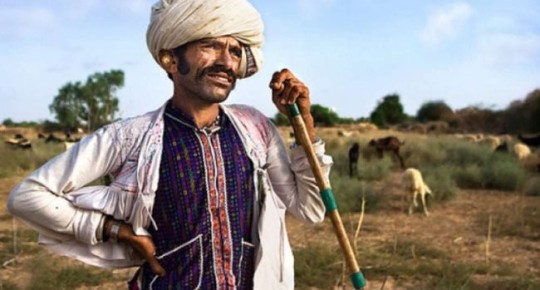
યહુદા 5
મારી તમને મદદ કરવાની ઈચ્છા છે. કેટલીક બાબતો યાદ રાખો જે તમે બધીજ રીતે જાણો છો: યાદ રાખો પ્રભુએ તેના લોકોને ઈજીપ્તની (મિસરની) ભૂમિમાંથી બહાર લાવીને તેઓનો બચાવ કર્યો. પરંતુ પાછળથી પ્રભુએ જે લોકો અવિશ્વાસીઓ હતા, તે બધાનો નાશ કર્યો.
Now I want to remind you, though you were fully informed once for all, that though the Lord [at one time] delivered a people out of the land of Egypt, He subsequently destroyed those [of them] who did not believe [who refused to adhere to, trust in, and rely upon Him].
— Jude 1:5 | Gujarati Bible (GERV) and the Amplified Bible Classic Edition (AMPC)
Gujarati Bible: પવિત્ર બાઈબલ © 2003 Bible League International and Amplified Bible, Classic Edition Copyright © 1954, 1958, 1962, 1964, 1965, 1987 by The Lockman Foundation.
Cross References: Exodus 12:51; Deuteronomy 1:32; Deuteronomy 2:15; 1 Corinthians 10:5; Hebrews 3:16; 2 Peter 1:12; 2 Peter 3:1
#God#judgment#wrath#sin#ungodly#sinners#rebels#rebellion#destroy#unbelievers#Jude 1:5#The Epistle of Jude#New Testament#Gujarati Bible#GERV#Bible League International#AMPC#Amplified Bible Classic Edition#The Lockman Foundation
8 notes
·
View notes
Text
NLCOM provides assistance to fire victims in Las Piñas City and Parañaque City
Recently the New Life Community Care Foundation International, Inc. (NLCOM) – the compassion arm of New Life Philippines located inside Alabang Hills Village in Muntinlupa City – announced through social media that it has provided assistance and relief to fire victims in the cities of Las Piñas and Parañaque.
To put things in perspective, posted below is an excerpt from the April 15, 2024 social…

View On WordPress
#Alabang#Alabang Hills Village#AMPC#Amplified Bible Classic Edition (AMPC)#Asia#assistance#Barangay Cupang#Barangay Manuyo Dos#Barangay San Dionisio#Barangay San Isidro#Blog#blogger#blogging#Book of Philippians#Book of Proverbs#Carlo Carrasco#City of Las Piñas#City of Parañaque#geek#God#God’s Word#Heavenly Father#Holy Bible#Holy Scripture#holy scriptures#Holy Spirit#Jesus#Las Piñas City#Las Pinas#Lord Jesus
0 notes
Text
THE MOVE OF GOD 2
9 BUT as it is written: “Eye has not seen, nor ear heard, Nor have entered into the heart of man The things which God has prepared for those who love Him.”
10 BUT GOD HAS REVEALED THEM TO US THROUGH HIS SPIRIT. For the Spirit searches all things, yes, the deep things of God.
11 FOR what man knows the things of a man except the spirit of the man which is in him? EVEN SO NO ONE KNOWS THE THINGS OF GOD EXCEPT THE SPIRIT OF GOD.
12 NOW we have received, not the spirit of the world, but the Spirit who is from God, THAT WE MIGHT KNOW THE THINGS THAT HAVE BEEN FREELY GIVEN TO US BY GOD."
1 Corinthians 2:9-12 (NKJV)

At each stage or every juncture of your Christian journey, you need to check and ask from God to know whether you are still on course in the fulfillment of His Purpose for your life.
Any number of Believers have derailed from the right path, because they allowed Rigidity. Such people are not seasoned, not current, they are far away from God.
a. They are still working with past instructions, stale messages or instructions, they received several years ago, and they have not met with God recently to know what He is saying.
b. They knew nothing about His move and progressiveness. They often criticize the new move of God, because they are out of touch with Him.
c. Such Believers would not endeavour to go to God and ask about His mind, whether they are right or wrong on the things they criticized. And the going to God for inquiry should be done with an open mind to know His move or doing presently, otherwise nothing would be gotten out of it.
THEY have derailed, and deviated, but they could not discern it.
Every Believer, and much more a Minister, should be current and be sensitive about the move of God and His leadings.
God changes patterns, strategies, every now and then, thus, you have to be sensitive in hearing His voice and knowing what He does per time—what is going on in His Kingdom per time.
How to position yourself for fresh instructions daily:
(i) Cultivate the habit of dialoguing with Him Always.
(ii) Always have a time to fellowship with God, and talk things out with Him.
(iii) Appreciate every little result. Nothing should be too small or minute to thank Him FOR.
a. When this is done, you receive fresh revelation on what next to do.
b. God will not speak further until you are back with Him in appreciation, about the last assignment, and give Him the feedback on whatever you had done.
c. In the place of appreciation and acknowledgement, He would give you New ideas, fresh Revelation, on whatever to do next.
d. Appreciate and acknowledge Him in all He has done—thank Him for His past faithfulness.
(iv) Tell Him of His goodness and faithfulness in all your doings in the past, and how He has helped you to accomplish in all you did. He wanted to hear that from you:
"I WILL SING OF THE MERCY AND LOVING-KINDNESS OF THE LORD FOREVER; WITH my MOUTH will I MAKE known YOUR FAITHFULNESS FROM GENERATION TO GENERATION" (Psalm 89:1 Amplified Bible, Classic Edition).
a. God wants whoever He has blessed to offer a Sacrifice of praise and Thanksgiving:
"THEREFORE, LET US OFFER THROUGH JESUS A CONTINUAL SACRIFICE OF PRAISE TO GOD, proclaiming our allegiance to his name" (Hebrews 13:15 NLT).
b. When this is done with a good heart, you cannot but receive a fresh revelation, a new direction, or an instruction, on what to do next.
Praises release God's favour.
When you praised God, you will experience an increase:
5 LET THE PEOPLES PRAISE YOU, O GOD; Let all the peoples praise You. 6 THEN THE EARTH SHALL YIELD HER INCREASE; GOD, our own God, SHALL BLESS US. 7 GOD SHALL BLESS US, And ALL the ENDS of the EARTH shall FEAR HIM" (Psalm 67:5-7 NKJV).
God can only lead a person who acknowledges and praises Him.
God does not, and would not lead a murmurer, someone who complains, because it is a sign of rebellion. God leads the praisers!
When you praised God, you put yourself in the position of receiving or having more from Him.
If you are stunted, you need to check your life.
You may have cut off from the original path, the line He places your feet—which He wanted you to follow.
God may want to change your focus, that could be the reason He halted you.
Look inwardly, be quiet, and be prayerful, and be meditative; He will open up to speak to you.
You may also need to repent if you had derailed from the right path He sets your feet.
The leading of God is of paramount importance.
If God does not lead you, how would you profit? (Isaiah 48:17).
If He does not lead you, how would you know the way to go? (Psalm 25:9).
If He does not lead you, how would you increase and make progress in life (John 15:5).
Cooperate with God to know His current move in your life, about the work you do, and about His Kingdom on earth.
And most importantly, endeavour to key into His programme for your life as an individual Believer If you discovered it.
Prayer
You will not become a monument in Jesus' name.
And you will not fail in Jesus' name.
Whatever ailment in your body is rooted up in Jesus' name.
Healthy living is your covenant right as a Believer in Christ Jesus, thus, you would no longer be afflicted with any sickness or disease in Jesus' name.
Peace!

#christianity#gospel#christian living#christian blog#jesus#devotion#the bible#faith#my writing#prayer
0 notes
Text
Upbringing forms, in us, the security and confidence that enables; OR the insecurity and self-loathing that disables us - from living life to the FULL.


Just to remind ourselves that it is, and has always been UPBRINGING, and NOT historicity that enabled women to choose different lifestyles
There is a continued resistance to the understanding of the power of upbringing.
People want NEW theories, NEW ideas - look at 2 Timothy 3:6-7
So much documentation to show that the generalisation of PATRIARCHY is a lie. Yet we do need Patriarchs MORE than we need Matriarchs.
This era is definitely the AGE OF MATRIARCHY and UNEMPOWERED MEN, and anarchy is rife.
TO discover the Scriptural and freeing precept for upbringing, read 1 Timothy 3
FIND THE TRUTH IN SCRIPTURE:
2 Timothy 3
Amplified Bible, Classic Edition
3 But understand this, that in the last days will come (set in) perilous times of great stress and trouble [hard to deal with and hard to bear].
...
4 [They will be] treacherous [betrayers], rash, [and] inflated with self-conceit. [They will be] lovers of sensual pleasures and vain amusements more than and rather than lovers of God.
...
6 For among them are those who worm their way into homes and captivate silly and weak-natured and spiritually dwarfed women…. 7 [These weak women will listen to anybody who will teach them]; they are forever inquiring and getting information, but are never able to arrive at a recognition and knowledge of the Truth.
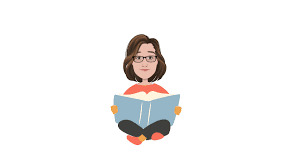
1 Timothy 3
Amplified Bible, Classic Edition
3 The saying is true and irrefutable: If any man [eagerly] seeks the office of bishop (superintendent, overseer), he desires an excellent task (work).
...
4 He must rule his own household well, keeping his children under control, with true dignity, commanding their respect in every way and keeping them respectful.
5 For if a man does not know how to rule his own household, how is he to take care of the church of God?
6 He must not be a new convert, or he may [develop a beclouded and stupid state of mind] as the result of pride [be blinded by conceit, and] fall into the condemnation that the devil [once] did.
...
11 [The] women likewise must be worthy of respect and serious, not gossipers, but temperate and self-controlled, [thoroughly] trustworthy in all things.
12 Let deacons be the husbands of but one wife, and let them manage [their] children and their own households well.

Internet lists of women who were given the steps to grow in the area they chose - NO militant behaviour necessary …
Just LOTS and LOTS and LOTS of women all through the ages!
Lavinia Fontana (1552-1614) is widely considered the first woman in Western art history to be Aemilia (c. 300 CE–363 CE), Gallo-Roman physician
Aglaonike (2nd century BCE), woman astronomer in Ancient Greece
Agnodike (4th century BCE), first woman physician to practise legally in Athens
Andromache (mid-6th century), Egyptian physician
Arete of Cyrene (5th–4th centuries BCE), Greek natural and moral philosopher
Artemisia of Caria (c. 300 BCE), botanist
Aspasia the Physician (fl. 1st century CE), Greek physician
Aurelia Alexandria Zosime, Ancient Roman physician
Chun Yuyan (1st century BCE), Chinese obstetrician and gynaecologist
Cleopatra the Alchemist (c. 3rd century CE), wrote the alchemical book, Chrysopoeia, or "gold-making"
Damo (6th century BCE), Greek natural philosopher
Diotima of Mantinea (4th century BCE), philosopher and scientist, ancient Greece
Eccello of Lucania (5th or 4th century BCE), Greek/Italian mathematician and natural philosopher
Echecratia the Philiasian (5th century BCE), Greek/Italian mathematician and natural philosopher
Elephantis (1st century BCE), Greek physician
Enheduanna (c. 2285–2250 BCE), Sumerian/Akkadian astronomer and poet
Fabiola (died 399 CE), Roman physician
Fang (first century BCE), Chinese chemist
Favilla (2nd century), Roman physician
Gargi Vachaknavi (7th century BCE), Indian philosopher
Gu Bao (4th century), Chinese physician
Hypatia (370–415 CE), mathematician and astronomer, Egypt
Laïs (c. 1st/2nd century BCE), midwife
Lais of Corinth, Ancient Greek physician
Leoparda (4th century CE), gynaecologist
Macrina (4th century CE), Greek physician and nun
Marcella (4th century CE), Roman healer
Mary the Jewess (1st or 2nd century CE), alchemist
Melissa (3rd century BCE), Greek philosopher
Metrodora (c. 200–400 CE), Greek physician and author
Minucia Asste, Ancient Roman physician
Myia (5th century BCE), Greek philosopher
Nicerata (c. 5th century), physician and healer
Occello of Lucania (4th or 5th century BCE), Greek natural philosopher and mathematician
Olympias of Thebes (1st century BCE), Greek midwife
Origenia (2nd century CE), Greek healer
Pao Ku Ko (3rd century CE), Chinese chemist
Paphnutia the Virgin (c. 300), Egyptian alchemist
Paula (347–404 CE), Roman healer
Perictione (5th century BCE), Greek philosopher, mother of Plato
Panthea, Ancient Greek physician, wife and colleague of Glycon
Philinna of Thessaly, Ancient Greek physician
Peseshet, Egyptian physician (Fourth Dynasty)
Pulcheria (5th century CE), healer
Pythias of Assos (4th century BCE), marine zoologist
Restituta (1st century), Ancient Roman physician
Salpe (1st century BCE), Greek midwife
Sotira (1st century BCE), Greek physician
Tapputi-Belatekallim (First mentioned in a clay tablet dating to 2000 BCE), Babylonian perfumer, the first person in history recorded as using a chemical process
Terentia Prima, Ancient Roman physician
Theano (6th century BCE), philosopher, mathematician and physician
Thelka, Iranian
Theosebeia (4th century CE), healer
Yi Jia (2nd century BCE), Chinese physician
Middle Ages
Herrad of Landsbert
Abella (14th century), Italian physician
Adelle of the Saracens (12th century), Italian physician
Adelmota of Carrara (14th century), Italian physician
Rufaida Al-Aslamia (7th century), Muslim nurse
Maesta Antonia (1386–1408), Florentine physician
Ameline la Miresse (fl. 1313–1325), French physician
Jeanne d'Ausshure (d. 1366), French surgeon
Brunetta de Siena (fl. 15th century), Italian-Jewish physician
Hildegard of Bingen (1099–1179), German natural philosopher
Sibyl of Benevento, Napolitan physician specialising in the plague buboes
Gentile Budrioli (?-1498), Italian astrologer and herbalist
Constanza, Italian surgeon,[9] mentioned in Pope Sixtus IV edict regarding physicians and surgeons.
Denice (fl. 1292), French barber-surgeon
Demud (fl. ca. 13th century), German physician
Dobrodeia of Kiev (fl. 1122), Byzantine physician
Dorotea Bucca (fl. 1390), Italian professor of medicine
Constance Calenda (15th century), Italian surgeon specialising in diseases of the eye
Virdimura of Catania (fl. 1376), Jewish-Sicilian physician
Caterina of Florence (fl. 1400s), Florentine physician
Jeanne de Cusey (fl. 1438), French barber-surgeon
Antonia Daniello (fl. 1400), Florentine-Jewish physician
Clarice di Durisio (15th century), Italian physician
Fava of Manosque (fl. 1322), French-Jewish physician
Jacobina Félicie (fl. 1322), Italian physician
Francesca, muller de Berenguer Satorra (15th century), Catalan physician
Maria Gallicia (fl. 1309), licensed surgeon
Bellayne Gallipapa (fl. 1380), Zaragoza, Spanish-Jewish physician
Dolcich Gallipapa (fl. 1384), Leyda, Spanish-Jewish physician
Na Pla Gallipapa (fl. 1387), Zaragoza, Spanish-Jewish physician
Sarah de St Giles (fl. 1326), French-Jewish physician and medical teacher
Alessandra Giliani (fl. 1318), Italian anatomist
Rebecca de Guarna (fl. 1200), Italian physician
Magistra Hersend (fl. 1249–1259), French surgeon
Maria Incarnata, Italian surgeon mentioned in Pope Sixtus IV edict regarding physicians and surgeons.
Isabiau la Mergesse (fl. 1292), French-Jewish physician
Floreta La-Noga (fl. 1374), Aragonese physician
Helvidis (fl. 1176), French physician
Keng Hsien-Seng (10th century), Chinese chemist
Li Shao Yun (11th century), Chinese chemist
Stephanie de Lyon (fl. 1265), French physician
Guillemette du Luys (fl. 1479), French royal surgeon
Thomasia de Mattio, Italian physician,[9] mentioned in Pope Sixtus IV edict regarding physicians and surgeons.
Margherita di Napoli (late 14th century), Napolitan oculist active in Frankfurt-am-Main
Mercuriade (14th century), Italian physician and surgeon
Gilette de Narbonne (fl. 1300), French physician
Isabella da Ocre, Napolitan surgeon
Francisca da Romana, Napolitan physician
Dame Péronelle (1292–1319), French herbalist
Peretta Peronne, also called Perretta Petone (fl. 1411), French surgeon
Lauretta Ponte da Saracena Calabria, Napolitan physician
Trota of Salerno (fl. 1090), Italian physician
Marguerite Saluzzi (fl. 1460), Napolitan licensed herbalist physician
Sara de Sancto Aegidio (fl. 1326), French physician
Juana Sarrovia (fl. 1384), Barcelona, Spanish physician
Shen Yu Hsiu (15th century), Chinese chemist
Sun Pu-Eh (12th century), Chinese chemist
Raymunda da Taberna, licensed Napolitan surgeon
Théophanie (fl. 1291), French barber surgeon
Trotta da Toya (f. 1307), Napolitan physician
Polisena da Troya (fl. 1335), licensed Napolitan surgeon
Margarita da Venosa (fl. 1333), licensed Napolitan surgeon, who studied at the University of Salerno[14] She was considered a noteworthy practitioner and counted Ladislaus, king of Naples, as a patient.
Francisca di Vestis (fl. 1308), Napolian physician
Zhang Xiaoniang (11th century), Chinese physician
16th century
Sophie Brahe portrait
Maria Andreae (1550–1632), German pharmacist
Marie de Brimeu (1550–1605), Flemish botanist
Sophia Brahe (1556–1643), Danish astronomer and chemist
Isabella Cortese (fl. 1561), Italian alchemist
Helena Magenbuch (1523–1597), German pharmacist
Loredana Marcello (died 1572), Venetian botanist
Elizabeth Moulthorne (fl. 1593), English barber-surgeon
Tarquinia Molza (1542–1617), Italian natural philosopher
Catherine de Parthenay (1554–1631), French mathematician
Elinor Sneshell (fl. 1593), English surgeon
Agatha Streicher (1520–1581), German physician
Caterina Vitale (1566–1619), Maltese pharmacist and chemist
Tan Yunxian (1461–1554), Chinese physician
17th century
Margaret Cavendish
Anna Åkerhjelm (1647–1693), Swedish traveller and archaeologist
Ann Baynard (1672–1697), British Natural philosopher
Aphra Behn (1640–1689), British translator of an astronomical work
Martine Bertereau (1600–fl.1642), French mineralogist
Agnes Block (1629–1704), Dutch horticulturist
Elisabeth of Bohemia, Princess Palatine (1618–1680), German natural philosopher
Louise Bourgeois Boursier (1563–1636), French obstetrician
Titia Brongersma (1650–1700), Frisian archaeologist, poet
Margaret Cavendish (1623–1673), natural philosopher
Marie Crous (fl. 1640), French mathematician
Maria Cunitz (1610–1664), Silesian astronomer
Jeanne Dumée (1660–1706), French astronomer
Maria Clara Eimmart (1676–1707), German astronomer
Marie Fouquet (1590–1681), French medical writer
Eleanor Glanville (1654–1709), English entomologist
Elisabeth Hevelius (1647–1693), Polish astronomer
Maria Sibylla Merian (1647–1717), naturalist
Marie Meurdrac (c. 1610–1680), French chemist and alchemist
Elena Cornaro Piscopia (1646–1684), Italian mathematician and the first female PhD
Marguerite de la Sablière (c. 1640–1693), French natural philosopher
Jane Sharp (fl. 1671), British obstetrician
Justine Siegemund (1636–1705), German obstetrician
Mary Somerset, Duchess of Beaufort (1630–1715), English botanist
Elizabeth Walker (1623–1690), British pharmacist
18th century
Geneviève Charlotte d'Arconville
Portrait of Émilie du Châtelet by Maurice Quentin de La Tour
Maria Gaetana Agnesi (1718–1799), Italian mathematician
Geneviève Charlotte d'Arconville (1720–1805), French anatomist
Madeleine-Françoise Calais (circa 1713 - fl. 1740) French dentist.
Princess Charlotte of Saxe-Meiningen (1751–1827), German astronomer
Maria Angela Ardinghelli (1728–1825), Italian mathematician and physicist
Sarah Sophia Banks (1744–1818), British natural history collector
Giuseppa Barbapiccola (c. 1702–1740), natural philosopher, translator
Jeanne Baret (1740–1807), French circumnavigator and botanist
Laura Bassi (1711–1778), Italian physicist
Marie Marguerite Bihéron (1719–1795), French anatomist
Celia Grillo Borromeo (1684–1777), Italian natural philosopher
Jacoba van den Brande (1735–1794), Dutch founder of first all-female science academy
Maria Christina Bruhn (1732–1808), Swedish inventor
Margaret Bryan (c. 1760–1815), British natural philosopher
Elsa Beata Bunge (1734–1819), Swedish botanist
Lydia Byam (fl. 1797–1800), naturalist
María Andrea Casamayor (1700–1780), Spanish mathematician
Émilie du Châtelet (1706–1749), French mathematician and physicist
Maria Medina Coeli (1764–1846), Italian physician
Jane Colden (1724–1766), American biologist
Rosalie de Constant (1758–1834), Swiss naturalist
Angélique du Coudray (1712–1794), French midwife
Maria Dalle Donne (1778–1842), Italian physician
Catharina Helena Dörrien (1717 – 1795), German botanist
Eva Ekeblad (1724–1786), Swedish agronomist
Hannah English Williams (died 1722), collector of natural history in the American British Colonies
Dorothea Erxleben (1715–1762), German physician
Charlotta Frölich (1698–1770), Swedish agronomist and historian
Elizabeth Fulhame (fl. 1794), British chemist
Lucia Galeazzi Galvani (1743–1788), Italian physician
Sophie Germain (1776–1831), elasticity theory, number theory
Clelia Durazzo Grimaldi (1760–1830), Italian botanist
Catherine Littlefield Greene (1755–1814), American inventor
Salomée Halpir (1718-fl. 1763), Lithuanian oculist
Caroline Herschel (1750–1848), German-British astronomer
Catherine Jérémie (1664–1744), French-Canadian botanist
Christine Kirch (1696–1782), German astronomer
Margaretha Kirch (1703–1744), German astronomer
Maria Margarethe Kirch (1670–1720), German astronomer[1]: 157
Marie Lachapelle (1769–1821), French midwife
Marie-Jeanne de Lalande (1760–1832), French astronomer
Marie Paulze Lavoisier (1758–1836), French chemist and illustrator
Nicole-Reine Lepaute (1723–1792), French astronomer
Elisabeth Christina von Linné (1743–1782), Swedish botanist
Martha Daniell Logan (1704–1779), American horticulturist
Eliza Lucas (1722–1793), American agronomist and indigo dye pioneer
Maria Lullin (1750–1831), Swiss entomologist
Catharine Macaulay (1731–1791), British social scientist
Anna Morandi Manzolini (1716–1774), Italian physician and anatomist
Marie Le Masson Le Golft (1750–1826), French naturalist
Sybilla Masters (1675–1720), patent for a corn mill
Lady Anne Monson (1726–1776), English botanist
Maria Petraccini (1759–1791), Italian anatomist and physician
Zaffira Peretti (fl. 1780), Italian anatomist and physician
Claudine Picardet (1735–1820) French chemist, mineralogist and meteorologist
Louise du Pierry (1746–1807), French astronomer
Marie Anne Victoire Pigeon (1724–1767), French mathematician
Faustina Pignatelli (1705–1785), Italian physicist
Anna Barbara Reinhart (1730–1796), Swiss mathematician
Cristina Roccati (1732–1797), Italian physics teacher
Jane Squire (bap. 1686 – 1743), English mathematician
Clotilde Tambroni (1758–1817), Italian philologist and linguistic
Petronella Johanna de Timmerman (1723–1786), Dutch scientist
Wang Zhenyi (1768–1797), Chinese astronomer
19th century
Anthropology
Maria Czaplicka (1884–1921), Polish cultural anthropologist
Alice Cunningham Fletcher (1838–1923), American ethnologist
Johanna Mestorf (1828–1909), German prehistoric archaeologist
Margaret Murray (1863–1963), British anthropologist
Clémence Royer (1830–1902), French anthropologist
Ellen Churchill Semple (1863–1932), American geographer
Praskovja Uvarova (1840–1924), Russian archaeologist
Archeology
Cornelia Horsford (1861– c. 1941), American archaeologist
Lady Hester Stanhope (1776–1839), British archaeologist
Zsófia Torma (1832–1899), Hungarian archaeologist, paleologist, anthropologist
Astronomy
Annie Jump Cannon, 1922 Portrait
Mary Albertson (1838–1914), American botanist and astronomer
Annie Jump Cannon (1863–1941), American astronomer
Agnes Mary Clerke (1842–1907), British astronomer
Florence Cushman (1860–1940), American astronomer
Cecilia Payne-Gaposchkin (1900–1979), American astronomer and astrophysicist
Williamina Fleming (1857–1911), Scottish/American astronomer
Caroline Herschel (1750–1848), German astronomer active in England
Margaret Lindsay Murray Huggins (1848–1915), British astronomer
Henrietta Swan Leavitt (1868–1921), American astronomer
Annie Russell Maunder (1868–1947), Irish astronomer
Antonia Caetana Maury (1866–1952), American astronomer
Maria Mitchell (1818–1889), American astronomer
Isis Pogson (1852–1945), British astronomer
Caterina Scarpellini (1808–1873), Italian astronomer
Sarah Frances Whiting (1846–1927), American astronomer and physicist
Mary Watson Whitney (1847–1921), American astronomer
Anna Winlock (1857–1904), American astronomer
Biology or natural history
Mary Anning
Frances Acton (1793–1881), British botanist
Elizabeth Cary Agassiz (1822–1907), American natural historian
Mary Albertson (1838–1914), American botanist and astronomer
Mary Anning (1799–1847), British natural historian
Emily Arnesen (1876–1928), Norwegian zoologist
Anna Atkins (1799–1871), British botanist
Harriet Henrietta Beaufort (1778–1865), British botanist
Isabella Bird Bishop (1831–1904), British natural historian
Priscilla Susan Bury (1799–1872), English botanist
Albertina Carlsson (1848–1930), Swedish zoologist
Mary Agnes Meara Chase (1869–1963), American biologist
Cornelia Clapp (1849–1934), American zoologist
Anna Botsford Comstock (1854–1930), American natural historian
Clara Eaton Cummings (1855–1906), American botanist
Eunice P. Cutter (1819-1898), American author of anatomy textbooks
Lydia Maria Adams DeWitt (1859–1928), American pathologist
Mary Cynthia Dickerson (1866–1923), American herpetologist, museum curator and writer
Amalie Dietrich (1821–1891), German natural historian
Alice Eastwood (1859–1953), American biologist
Rosa Smith Eigenmann (1858–1947), American biologist
Olga Fedtschenko (1845–1921), Russian botanist
Maria Elizabeth Fernald (1839–1919), American entomologist
Elisabetta Fiorini Mazzanti (1799–1879), Italian botanist
Susanna Phelps Gage (1857–1915), American embryologist and comparative anatomist
Lilian Jane Gould (1861–1936), British biologist
Amelia Griffiths (1768–1858), British phycologist
Marian E. Hubbard (1868–1956), American zoologist
Agnes Ibbetson (1757–1823), English vegetable physiologist
Susan Hallowell (1835–1911), American botanist
Gabrielle Howard (1876–1930), British plant physiologist
Ellen Hutchins (1785–1815), Irish botanist
Ida Henrietta Hyde (1857–1945), American biologist
Maria Elizabetha Jacson (1755–1829), English botanist
Alice Johnson (1860–1940), English zoologist
Józefa Joteyko (1866–1928), physiologist, psychologist, pedagogist
Josephine Kablick (1787–1863), botanist
Helen Dean King (1869–1955), American biologist
Phoebe Lankester (1825–1900), British botanist
Marie-Anne Libert (1782–1865), Belgian botanist and mycologist
Friederike Lienig (1790–1855), German-Baltic entomologist
Elizabeth Eaton Morse (1864–1955), American mycologist/cryptogamist
Katharine Murray Lyell (1817–1915), British botanist
Helen Abbott Michael (1857–1904), American botanist and chemist
Olive Thorne Miller (1831–1918), American natural historian
Maria Gugelberg von Moos (1836–1918), Swiss botanist
Margaretta Morris (1797–1867), American entomologist
Mary Murtfeldt (1848–1913), American biologist
Eleanor Anne Ormerod (1828–1901), British biologist
Edith Marion Patch (1876–1954), American biologist
Maria Louisa Pike (d. 1892), American naturalist
Beatrix Potter (1866–1943), British mycologist
Mary Jane Rathbun (1860–1943), American marine biologist
Margaretta Riley (1804–1899), British botanic
Caroline Rosenberg (1810–1902), Danish botanist
Ethel Sargant (1863–1918), British biologist
Hazel Schmoll (1890–1990), American botanist working on plant life in Colorado
Lilian Sheldon (1862–1942), English zoologist
Alexandra Smirnoff (1838–1913), Finnish pomologist
Annie Lorrain Smith (1854–1937), British lichenologist and mycologist
Emilie Snethlage (1868–1929), German-Brazilian naturalist and ornithologist
Nettie Stevens (1861–1912), American geneticist
Jantina Tammes (1871–1947), Dutch botanist and geneticist
Charlotte De Bernier Taylor (1806–1863), American entomologist
Mary Treat (1830–1923), American naturalist
Anna Vickers (1852–1906), marine algologist
Jeanne Villepreux-Power (1794–1871), French marine biologist
Anna Maria Walker (c. 1778–1852), Scottish botanist
Elizabeth Andrew Warren (1786–1864), Cornish botanist
Mary Anne Whitby (1784–1850), English breeder of silkworms
Mary Pirie (1822–1885), Scottish botanist
Chemistry
Ida Freund
Vera Bogdanovskaia (1868–1897), Russian chemist
Ida Freund (1863–1914), first woman to be a university chemistry lecturer in the UK
Louise Hammarström (1849–1917), Swedish chemist
Edith Humphrey (1875–1978), probably the first British woman to gain a doctorate in chemistry
Julia Lermontova (1846–1919), Russian chemist
Laura Linton (1853–1915), American chemist
Rachel Lloyd (1839–1900), American chemist
Adelaida Lukanina (1843–1908), Russian physician and chemist
Helen Abbott Michael (1857–1904), American botanist and chemist
Frances Micklethwait (1867–1950), British research chemist
Muriel Wheldale Onslow (1880–1932), British biochemist
Marie Pasteur (1826–1910), French chemist and bacteriologist
Mary Engle Pennington (1872–1952), American chemist
Agnes Pockels (1862–1935), German chemist
Vera Popova (1867–1896), Russian chemist
Anna Sundström (1785–1871), Swedish chemist
Ellen Swallow Richards (1842–1911), American industrial and environmental chemist
Margarete Traube (1856–1912), German-born chemist who lived in Italy
Anna Volkova (1800–1876), Russian chemist
Martha Annie Whiteley (1866–1956), English chemist and mathematician
Nadezhda Olimpievna Ziber-Shumova (died 1914), Russian chemist
Engineers
Mary Dicas (fl. 1800–1815), maker of scientific instruments
Emily Roebling (1844–1903), American civil engineer
Geology
Florence Bascom (1862–1945), American geologist
Etheldred Benett (1776–1845), British geologist
Mary Buckland (1797–1857), British paleontologist and marine biologist
Margaret Crosfield (1859–1952), British paleontologist and geologist
Maria Gordon (1896–1939), Scottish geologist
Mary Emilie Holmes (1850–1906), American geologist and educator
Charlotte Murchison (1788–1869), Scottish geologist
Elizabeth Philpot (1780–1857), British paleontologist
Inventors
Tabitha Babbitt (1779–1853), American inventor and tool maker
Mary Brush (fl. 1815), American inventor
Martha Coston (1826–1904), American inventor
Ellen Eglin (1849–fl. 1890), American inventor
Caroline Eichler (1809–1843), German inventor, instrument maker and prostheses designer.
Hanna Hammarström (1829–1909), Swedish inventor
Mary Kies (1752–1837), American inventor
Margaret E. Knight (1838–1914), American inventor, first woman awarded a U.S. patent
Huang Lü (died 1829), Chinese optic inventor
Mathematics
Ada King, Countess of Lovelace (Ada Lovelace)
Sofia Kovalevskaya (1850–1891), Russian mathematician (partial differential equations, rotating solids, Abelian functions)[1]: 162
Augusta Ada Byron Lovelace (1815–1851), British mathematician
Emilie Martin (1869–1936), American mathematician
Florence Nightingale (1820–1910), British statistician and nurse
Emmy Noether (1882–1935), German mathematician
Microbiology
Alice Catherine Evans (1881–1975), American microbiologist
Medicine
Rachel Alcock (1862–1939), British physiologist
Elizabeth Garrett Anderson (1836–1917), British physician
Hedda Andersson (1861–1950), Swedish physician
Lovisa Årberg (1801–1881), first woman doctor and surgeon in Sweden
Amalia Assur (1803–1889), Swedish dentist
Sara Josephine Baker (1873–1945), American doctor (child hygiene pioneer)
Chandramukhi Basu (1860–1944), Indian physician
Elizabeth Blackwell (1821–1910), American physician
Emily Blackwell (1826–1910), American physician
Marie Boivin (1773–1841), French writer on obstetrics
Elizabeth D. A. Cohen (1820–1921), American physician, first female physician in the state of Louisiana
Rebecca Cole (1846–1922) American physician, by 1867 she was the second African-American woman to become a doctor in the United States
Rebecca Lee Crumpler (1831–1895) American physician, by 1864 she was the first African-American woman to become a doctor in the United States
Maria Dalle Donne (1778–1842), Italian physician
Marie Durocher (1809–1893), Brazilian obstetrician, midwife and physician
Enriqueta Favez (c. 1791–1856), Swiss physician and surgeon
Rosalie Fougelberg (1841–1911), Swedish dentist
Rupa Bai Furdoonji, Indian physician who was the world's first female anaesthetist
Kadambini Ganguly (1861–1923), Indian physician
Johanna Hedén (1837–1912), Swedish midwife, feldsher and barber
Aletta Jacobs (1854–1929), Dutch physician
Maria Jansson (1788–1842), known as Kisamor, Swedish physician
Sophia Jex-Blake (1840–1912), British physician
Anandi Gopal Joshi (1865–1887), Indian physician
Mary Poonen Lukose (1886–1976), Indian gynaecologist
Emmy Rappe (1835–1896), Swedish nurse
Martha Ripley (1843–1912), American physician and suffragist
Varvara Kashevarova Rudneva (1844–1899), Russian physician
Florence R. Sabin (1871–1953), American medical scientist
Ellen Sandelin (1862–1907), Swedish physician and teacher of physiology
Regina von Siebold (1771–1849), German physician and obstetrician
Charlotte von Siebold (1788–1859), German physician and gynaecologist
Anna Stecksén (1870–1904), Swedish pathologist
Lucy Hobbs Taylor (1833–1910), American dentist
Isala Van Diest (1842–1916), first female medical doctor and female university graduate in Belgium
Catharine van Tussenbroek (1852–1925), Dutch gynecologist
Mary Walker (1832–1919), American surgeon
Karolina Widerström (1856–1949), Swedish physician
Thora Wigardh (1860–1933), Swedish physician
Marie Elisabeth Zakrzewska (1829-1902), Polish-American physician
Nuclear physics
Lise Meitner (1878–1968), Austrian, Swedish, nuclear physicist
Physics
Hertha Marks Ayrton (1854–1923), British physicist
Mileva Einstein-Maric (1875–1948), Serbian/Swiss physicist
Margaret Eliza Maltby (1860–1944), American physicist
Mary Somerville (1780–1872), British physicist, polymath
Eunice Newton Foote (1819–1888), American inventor and physicist who first discovered rising carbon dioxide (CO2) levels
Psychology
Mary Whiton Calkins (1863–1930), American psychologist
Christine Ladd-Franklin (1847–1930), American psychologist
Margaret Floy Washburn (1871–1939), American psychologist
Anna Freud (1895–1982), Austrian-British psychoanalyst
Science education
Jane Webb Loudon (1807–1858), Writer of introductory gardening books
Jane Marcet (1769–1858), Writer of introductory science books
Almira Hart Lincoln Phelps (1793–1884), American science educator
Josephine Silone Yates (died 1912), American chemistry professora professional artist.
Elizabeth Blackwell (1821–1910) was the first woman to earn a medical degree in the United States
Elizabeth Garrett Anderson (9 June 1836 – 17 December 1917) was an English physician She is known for being the first woman to qualify in Britain as a physician and surgeon
Edith Clarke is the very first female engineer. Born in 1883.


Women do NOT need empowering.
Some mothers have disempowered their sons.
#feminism#patriarchy#matriarchy#contentment#lovingwomen#unhappywomen#letmenbemen#WomenAreNotVictims#MothersBuildUpYourSons
1 note
·
View note
Text
0 notes
Text
TODAY, I MAKE 12 YEARS SOBER;
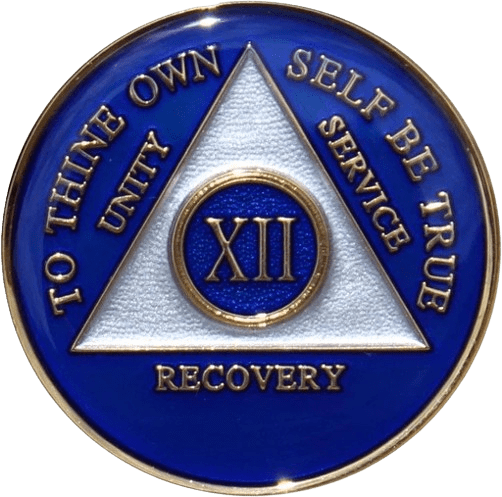
12 Years off alcohol and marijuana;
I am so humbled and privileged to be celebrating 12 Years Sober today. After I made 10 Years sober, a party was made for me. Shortly after, the great tests began. A fire that I had to pass through was lit. The amazing thing is that I lost what I lost in that fire. Maybe one day I'll be able to openly talk about it. But I never lost my sobriety.
My sobriety is a testimony that a person can go through the deepest waters and most intense fires and still stay sober. How is that? The One who gave it to me was with me all the way.
Isaiah 43:2, Amplified Bible, Classic Edition;
When you pass through the waters, I will be with you, and through the rivers, they will not overwhelm you. When you walk through the fire, you will not be burned or scorched, nor will the flame kindle upon you.
This gift of sobriety amazes me. After I got sober in 2012, I started rapping. I was in bars three to four days in a week, surrounded by much alcohol but Jesus (God as I understand Him) had done it! He took away the cravings. The alcohol in bars and all the other different places I performed at didn't have anything on me.
This lifestyle of rapping went on till 2016. Three of four days in a week, I was performing in bars. I remember at one point, I sat with a friend in his car. He got his phone out and started snorting cocaine. I wasn't bothered at all by it.
When I made 8 years sober, I entered into active service by doing an outreach in Kivulu. From then, I started doing an outreach on most weekends in different ghettos. Such environments like ghettos, can trigger a person. Jesus has always stood there by me, with me and protected me.
I'm very honoured and humbled to be part of the wave of hope in recovery that is sweeping over many.
I was born sober. That's the image of God I was created in. Growing up, I went through some pain and trauma, then inevitably ran to alcohol to cope; distanced from the image of God I was created in.
In getting sober, there's was redemption. Sobriety and recovery rooted in Jesus redeemed me back to the image of God I was created in. I don't have to do anything to stay sober.
What does this period of sobriety mean to me?
It means that in 12 Years, I haven't lost a phone due to drinking.
For 12 Years, I haven't had a blackout.
For 12 Years, I have been sleeping in my own bed every day of the week.
For 12 Years, no one waited for me at home, worried that I'd come back home drunk at 4am.
For 12 Years, those close to me have had no conflict directly or indirectly related to addiction. They are at peace.
It means that for 12 Years, I haven't lost a pair of shoes ...
It means so much to me.
And today, I celebrate that!
Read the full article
1 note
·
View note
Text
KJV Amplified Parallel Bible
Exploring the KJV Amplified Parallel Bible: Bridging Traditionalism and Modernity
The King James Version (KJV) of the Bible stands as one of the most influential translations in the English-speaking world, revered for its poetic language and historical significance. In contrast, the Amplified Bible seeks to provide readers with a deeper understanding of the original text by incorporating various nuances and shades of meaning. The KJV Amplified Parallel Bible brings together these two distinct translations, offering readers a unique perspective on Scripture that bridges traditionalism and modernity. This article delves into the significance of this parallel edition, exploring its features, benefits, and impact on contemporary Bible study.
The KJV Amplified Parallel Bible presents an innovative approach to studying Scripture, allowing readers to compare and contrast the classical beauty of the KJV with the expanded clarity of the Amplified Bible. This parallel edition offers several advantages for both seasoned scholars and newcomers to biblical study.
One of the primary benefits of the KJV Amplified Parallel Bible is its accessibility. By juxtaposing the KJV and the Amplified versions side by side, readers can easily navigate between the two translations, gaining insights into the nuances of the text without needing to consult multiple volumes or reference materials. This accessibility encourages deeper engagement with Scripture, empowering readers to explore the richness of God's Word in a user-friendly format.
Furthermore, the parallel format of the KJV Amplified Bible facilitates comparative analysis, allowing readers to discern the subtle differences between the two translations. While the KJV maintains the traditional elegance of Early Modern English, the Amplified Bible offers a more contemporary rendering that seeks to elucidate the underlying meaning of the original Hebrew and Greek texts. By comparing these two translations, readers can gain a deeper appreciation for the complexity and depth of Scripture, uncovering layers of meaning that may not be immediately apparent in a single translation.
In addition to its comparative features, the KJV Amplified Parallel Bible includes supplementary materials that enhance the reading experience. Introductions to each book provide valuable context and background information, guiding readers through the historical, cultural, and literary dimensions of the biblical text. Moreover, footnotes and cross-references offer additional insights and clarification, enriching the reader's understanding of key passages and themes.
One of the distinctive features of the Amplified Bible is its use of amplifications, which provide expanded renderings of certain words and phrases to convey the full range of their meanings. This amplification process aims to capture the richness and depth of the original languages, allowing readers to grasp the subtleties of Scripture more fully. In the KJV Amplified Parallel Bible, these amplifications are presented alongside the traditional text of the KJV, offering readers a comprehensive view of the biblical text that combines the beauty of classical language with the precision of modern scholarship.
The KJV Amplified Parallel Bible is not only a valuable tool for personal study but also a useful resource for teaching and preaching. Its parallel format facilitates comparative exegesis, enabling pastors and teachers to explore different translations and interpretations of Scripture in their sermons and lessons. By incorporating both the KJV and the Amplified Bible into their teaching, ministers can reach a broader audience and effectively communicate the timeless truths of Scripture in a language that resonates with contemporary listeners.
Moreover, the KJV Amplified Parallel Bible fosters unity within the Christian community by bringing together believers from diverse theological backgrounds. While some may prefer the traditional elegance of the KJV, others may appreciate the clarity and accessibility of the Amplified Bible. By offering both translations in a single volume, the parallel edition encourages dialogue and mutual understanding among Christians, fostering a spirit of collaboration and cooperation in the study and interpretation of Scripture. In conclusion, the KJV Amplified Parallel Bible represents a significant contribution to biblical scholarship and exegesis. By bringing together the timeless beauty of the King James Version with the expanded clarity of the Amplified Bible, this parallel edition offers readers a unique opportunity to explore Scripture in all its richness and complexity. Whether used for personal study, teaching, or preaching, the KJV Amplified Parallel Bible serves as a valuable resource for engaging with the Word of God in a meaningful and transformative way. As believers continue to seek deeper insights into the mysteries of Scripture, this innovative edition will undoubtedly remain a cherished companion on their spiritual journey.
1 note
·
View note
Text
VERSE OF THE DAY
2 Corinthians 5:14-15 (Amplified Bible, Classic Edition)
For the love of Christ controls and urges and impels us, because we are of the opinion and conviction that [if] One died for all, then all died; And He died for all, so that all those who live might live no longer to and for themselves, but to and for Him Who died and was raised again for their sake.
View On WordPress
0 notes
Photo

1 Peter 5:10 Amplified Bible, Classic Edition 10 And after you have suffered a little while, the God of all grace [Who imparts all blessing and favor], Who has called you to His [own] eternal glory in Christ Jesus, will Himself complete and make you what you ought to be, establish and ground you securely, and strengthen, and settle you. (at Northwest Columbia, Irmo, South Carolina) https://www.instagram.com/p/Cp2jwTLO-s-_2XV7h3R2viTAdV0kaZTTPM2PM80/?igshid=NGJjMDIxMWI=
0 notes
Text

Speak Evil of No One
1 Remind people to be submissive to [their] magistrates and authorities, to be obedient, to be prepared and willing to do any upright and honorable work,
2 To slander or abuse or speak evil of no one, to avoid being contentious, to be forbearing (yielding, gentle, and conciliatory), and to show unqualified courtesy toward everybody.
3 For we also were once thoughtless and senseless, obstinate and disobedient, deluded and misled; [we too were once] slaves to all sorts of cravings and pleasures, wasting our days in malice and jealousy and envy, hateful (hated, detestable) and hating one another.
4 But when the goodness and loving-kindness of God our Savior to man [as man] appeared,
5 He saved us, not because of any works of righteousness that we had done, but because of His own pity and mercy, by [the] cleansing [bath] of the new birth (regeneration) and renewing of the Holy Spirit,
6 Which He poured out [so] richly upon us through Jesus Christ our Savior.
7 [And He did it in order] that we might be justified by His grace (by His favor, wholly undeserved), [that we might be acknowledged and counted as conformed to the divine will in purpose, thought, and action], and that we might become heirs of eternal life according to [our] hope.
8 This message is most trustworthy, and concerning these things I want you to insist steadfastly, so that those who have believed in (trusted in, relied on) God may be careful to apply themselves to honorable occupations and to doing good, for such things are [not only] excellent and right [in themselves], but [they are] good and profitable for the people.
— Titus 3:1-8 | Amplified Bible Classic Edition (AMPC)
Amplified Bible, Classic Edition Copyright © 1954, 1958, 1962, 1964, 1965, 1987 by The Lockman Foundation.
Cross References: Deuteronomy 9:5; Ezekiel 36:25; Matthew 25:34; Mark 10:17; Luke 1:47; Romans 1:29; Romans 5:5; Romans 6:6; Romans 13:1; 1 Timothy 3:3; 1 Timothy 6:17; 2 Timothy 2:14; 2 Timothy 2:25; Titus 2:7; Titus 2:10; Titus 2:14
#God#ordained#authorities#obedience#speaking#evil#warning#Titus 3:1-8#The Epistle of Titus#New Testament#AMPC#Amplified Bible Classic Edition#The Lockman Foundation
9 notes
·
View notes
Text
I visited the grave of Oskar Schindler
Disclaimer: This is my original work with details sourced from my personal experiences and observations during the Israel pilgrimage tour I joined and what happened during my free time. Anyone who wants to use this article, in part or in whole, needs to secure first my permission and agree to cite me as the source and author. Let it be known that any unauthorized use of this article will…

View On WordPress
#faithful#1990s#4K Blu-ray#Abraham#AMPC#Amplified Bible Classic Edition (AMPC)#anti-Semite#anti-Semites#anti-Semitic#anti-Semitism#Avenue of the Righteous#Be the fearless and aggressive church of Lord Jesus#Behold Israel#Better than Streaming#Bible#bible lesson#Bible prophecy#bible scripture#bible teaching#Bible verse#bible verses#biblical#biblical ties#biblical ties between Jews and Christians#bless the Jewish people#blessings from God#Blog#blogging#Blu-ray#Body of Christ
1 note
·
View note
Text
MINISTER AND THE HEARING FROM GOD 1
9 BUT you are not in the flesh but in the Spirit, if indeed the Spirit of God dwells in you. Now if anyone does not have the Spirit of Christ, he is not His.
14 FOR as many as are LED by the SPIRIT of God, THESE ARE SONS [daughters] OF GOD.
Romans 8:9,14 (NKJV)
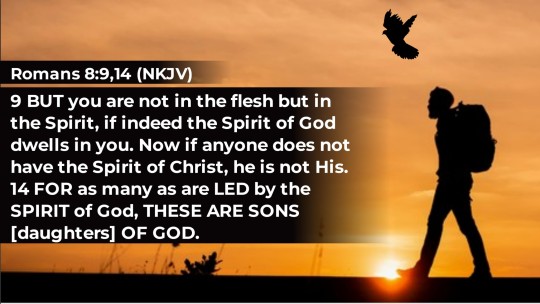
• Whatever a Minister wanted to do in the course of his or her assignment should be received or led to be done, by God.
- If your Word and Prayer life is Sound, you would not have much problem in this area.
- The most commonest way which God uses in speaking to every Believer, Even His Ministers, is the inner witnessing.
- An inner witness is the commonest way, and God expected every Believer to be able to hear Him through this (Romans 8:14).
- There are other ways which God uses, and that included the spectaculars: visions, dreams, trances, angelic visitations, but such are not common, that is, God does not communicate through them often—except those who are called to be a prophet.
- God also speaks through His Word, whilst reading and studying and pondering on it.
- He also uses circumstances, the crying out of wisdom (Proverbs 8:1-5), and His servants—through their preachings, Teachings, and counselings.
- It is important that whatever you heard, should be weighed or checked in the light of the Word of God. Does the message agree or align with the Word of God?
• Whoever wants to hear from God:
- Should be still and learn to be quiet. You cannot be noisy, talking, and still want to hear at the same time.
- The person must be Disciplined and self-controlled.
- Must not be given to carousing, partying, must not be someone who wanted to be in every function, both the necessary and the unnecessary: "WHEREAS she who lives in pleasure and self-gratification [giving herself up to luxury and self-indulgence] is dead even while she [still] lives" (1 Timothy 5:6 Amplified Bible, Classic Edition).
READ: Luke 21:34
- Sporting activities might not be outright bad, If you did know how to handle it, such that, It would not affect your Fellowshipping with God (1 Timothy 4:8).
• You have to grow in the hearing of God, your discerning ability.
- God communicates mostly through inward witnesses as earlier said, but He does frequently nonverbally.
- He uses things, events happening around you, in getting your attention and communicates to you as a son or daughter of His (Jeremiah 18:1,2).
- You grow in discerning from one level of your spiritual growth to another, as you pay attention to it. Remember, It is God's Will that every Believer, sons and daughters of His, know how to hear Him—how to be led through the Holy Spirit on the inside of them: FOR as many as are LED by the SPIRIT of God, THESE ARE SONS [daughters] OF GOD" (Romans 8:9,14 (NKJV).
- If a supposed Minister of God could not hear from God, such has already placed a limit on how far he or she could be used in the work of Ministry (Isaiah 42:19,20).
- You have to work on it. No one would hear for a Minister. Your intimacy with God must be Strong enough, that you would be able to hear Him per time.
• Receiving a counsel from someone whom you Revere and the hearing from God (Proverbs 15:22).
- There is a place of receiving a counseling from others, and that of hearing from God by yourself. The two are important, and they are necessary, and might be needed.
- When you went for counseling, you can only be given a form, or a pattern, like a frame structure, but not the details.
THE reason being that, the person whom you have gone to, for counseling, is not God, he or she cannot give you the details. But when they shared their views and experience, you can pick some things—receive the light through what the person has shared.
- After the counseling, you still need to be sensitive and know what to pick out of what the person has shared.
- You would have to know whether the counseling is suitable for your situation, what you are currently passing through, or not.
- You pick through the leading of the Holy Spirit, the one that is relevant to your situation—the challenge before you which you are currently facing.
- This also is applicable to the teaching you heard or the one you Read in a book.
a. Do not take all you Read in someone's book and apply it directly. You look and pick out the ones that are applicable to your life and Ministry, you also need sensitivity in this area.
b. What works for the person who shared It in his or her book, might not work exactly the same way in your own life and Ministry.
c. But what the person has shared which you Read would give you a clue, a pattern, or a direction, on what to do about whatever you are passing through.
- The best way is to subject whatever counsel you received, or whatever you gleaned or deduced in someone's book which you read, to the Holy Spirit for guidance.
- Jethro, Prince of Midian, and Moses' father in-law, said to Moses:
"IF you AGREE with MY IDEA, AND IF GOD COMMANDS YOU TO DO IT, it will help you. The work will not be too hard for you. And all these people will go home happily' " (Exodus 18:23 (Easy English Bible).
"IF you follow this ADVICE, AND IF GOD COMMANDS YOU TO DO SO, then you will be able to endure the pressures, and all these people will go home in peace.”
Exodus 18:23 (NLT)
"IF you follow this ADVICE, AND IF THE LORD AGREES, you will be able to endure the pressures, and there will be peace and harmony in the camp.”
Exodus 18:23 (the Living Bible)
- If God did NOT agree, or approve, or command to do, whatever advice or counsel you received from anyone, no matter how you Revere the person, do not do it.
• When I was relating with a revered Minister of God as my mentor. I was still young in the Ministry work and inexperienced. Whenever I was confused on a particular matter, which I could not discern the mind of God on it. I usually would pray to God that I wanted to go for counseling, to meet His servant, that He, God, should through him tell me whatever He, God, wanted me to know and do about the matter at hand. I would tell God that whatever the Minister of His told me to do, that I would assume or consider to be His Mind or Will for me about the situation at hand.
- As I prayed the prayers I would proceed for the counseling, and the outcome was always good, It usually worked.
- Note:
a. This could work then, because of my level of growth and knowledge in the Ministry work.
b. If I do that now, It might not work, God might not give a direction through that pattern now, He expected me to know better and to have moved up in my Walk and Fellowshipping with Him.
c. Also, If this method would be used by whoever is just coming up, such should make sure the person whom you wanted to meet for the counseling is someone who WALKS in the Spirit and can tell you the truth.
• You will not fail in Jesus' name.
Peace!
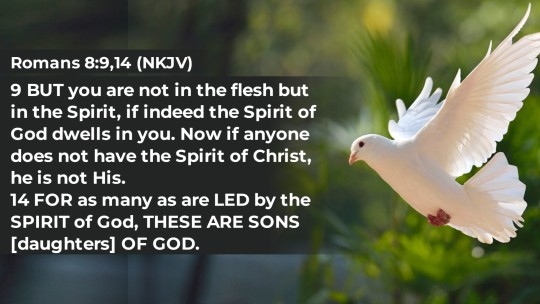
#christianity#christian living#gospel#christian blog#jesus#the bible#devotion#faith#my writing#prayer
0 notes
Photo
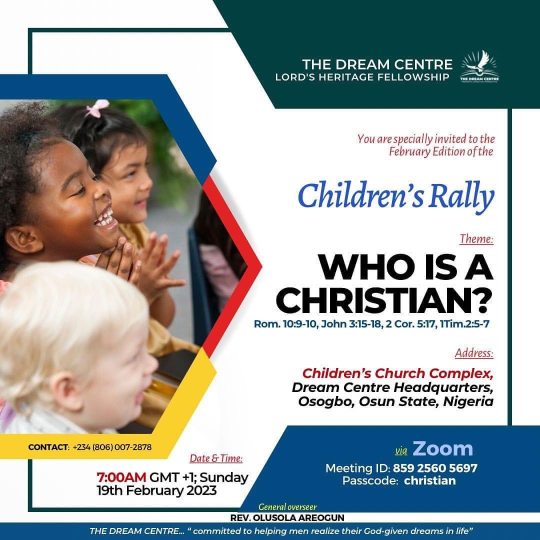
#jesusloves #littlechildren Matthew 19:14-15 Amplified Bible, Classic Edition 14 But He said, Leave the children alone! Allow the little ones to come to Me, and do not forbid or restrain or hinder them, for of such [as these] is the kingdom of heaven composed. 15 And He put His hands upon them, and then went on His way. https://www.instagram.com/p/Cowllpyr-po/?igshid=NGJjMDIxMWI=
0 notes
Text
0 notes

